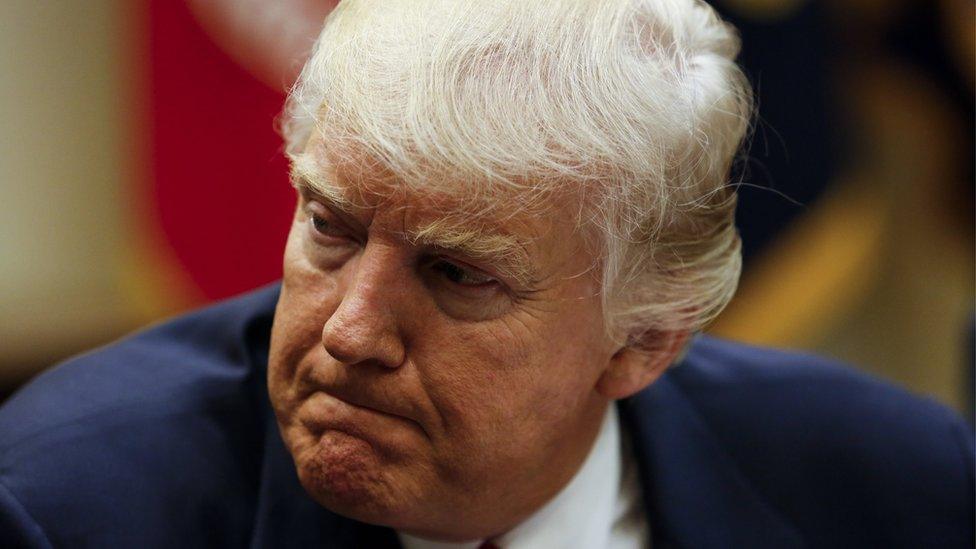Why Trump's big speech to Congress may actually matter
- Published
Trump's speech to Congress: Lessons from history
The state of the union is broken. Or, at least, the state of the State of Union address is broken.
Audiences for this annual political tradition have been steadily declining for years.
In 1993, 60 million Americans tuned in to watch the new president from Arkansas (Bill Clinton) address Congress.
By Barack Obama's last address, the audience was half that.
Or maybe American television viewers are simply smart and have figured out that the State of the Union is boring and, frankly, they'd rather spend an hour of their time doing something else.
The reason it's boring is that the long list of grand plans that recent presidents have proposed during the speech had very little chance of actually becoming policy.

An increasingly unconciliatory Congress combined with a deeply partisan media landscape have killed the prospects for significant change here.
This means that the gap between State of the Union rhetoric and State of the Union reality has grown ever wider.
If government isn't going to do anything anyway, why bother giving them a precious hour of your viewing time?
At least that seems to be the thinking of the 30 million Americans who have given up tuning in.
Will this year be different?
Quite possibly Donald Trump will get a viewing bump on Tuesday night (and if he does, he will almost certainly tell us about it).
US woman casts a spell to curb President Donald Trump
First off, he's Donald Trump. Even in this most formal and scripted of events, there's always the chance he will say something extreme, if only to get our attention. He's good at that.
Donald Trump is still pretty good for TV ratings just because he is who he is, unpredictable and different.
Secondly, and more importantly, there is more chance now that what we hear on Tuesday evening could actually become law.
Mr Trump has both chambers of Congress on his side and he is about to get a conservative judge on to the Supreme Court.
Decoding Trump's top five hand gestures
This means government is no longer divided and Republicans are in a mood to please the man who got them all this power.
This address is not actually a State of the Union, because in their first year in office presidents are not deemed to have been around long enough to give one.
So they give a simple address to Congress instead.
That's a technicality and you can ignore it. This is basically the same thing, an expression of the president's agenda and will.
So tune in, you may be pleasantly surprised.
This address may actually matter, and, in any case, it is unlikely to be boring.